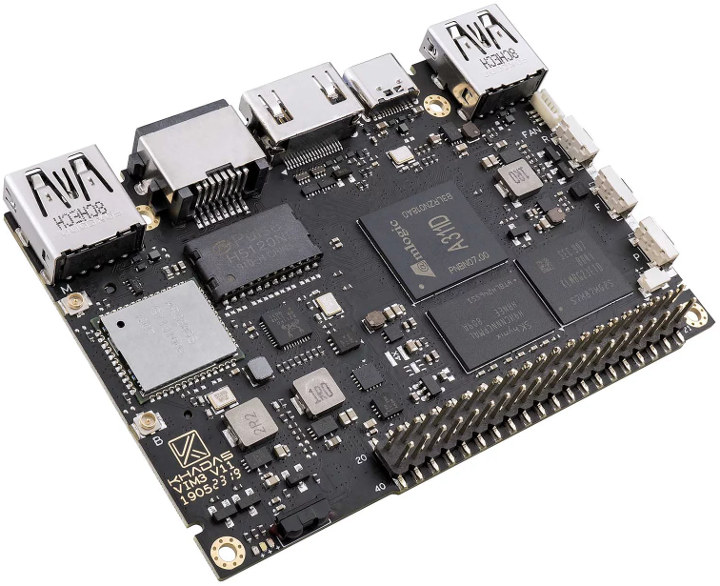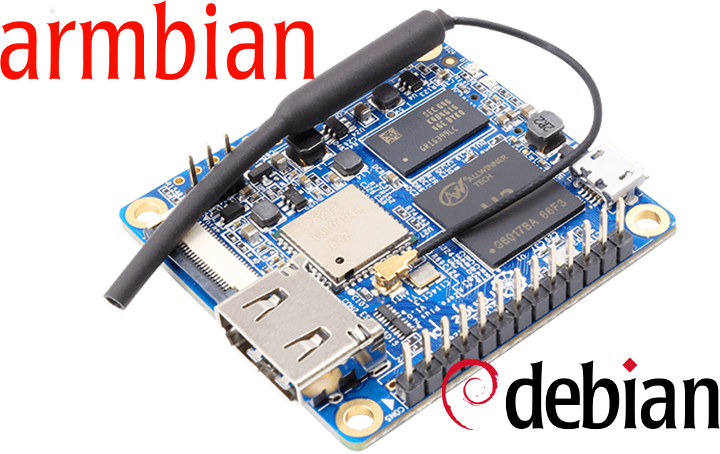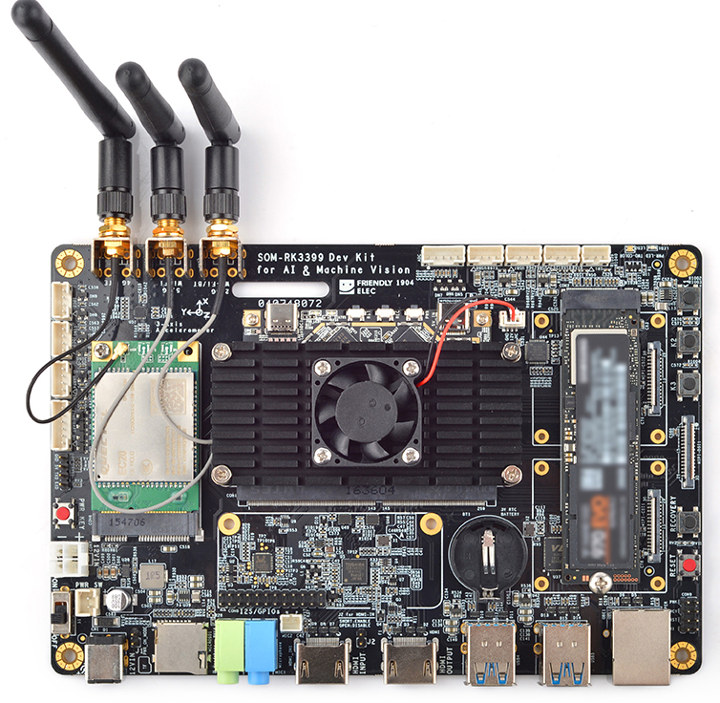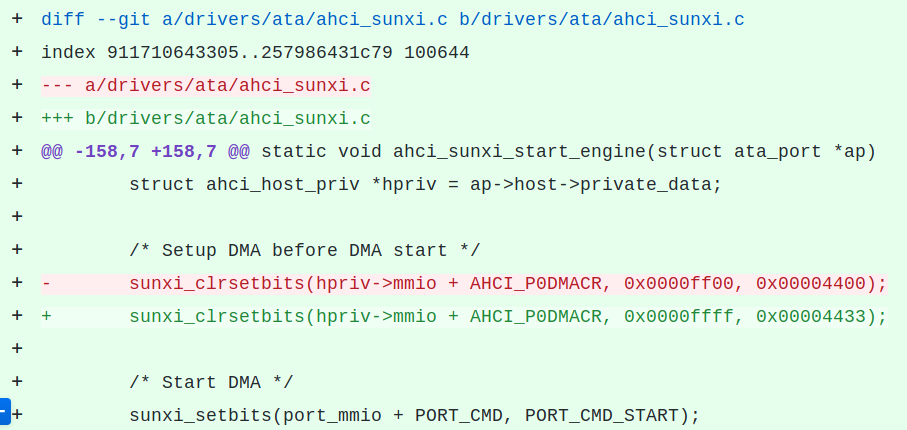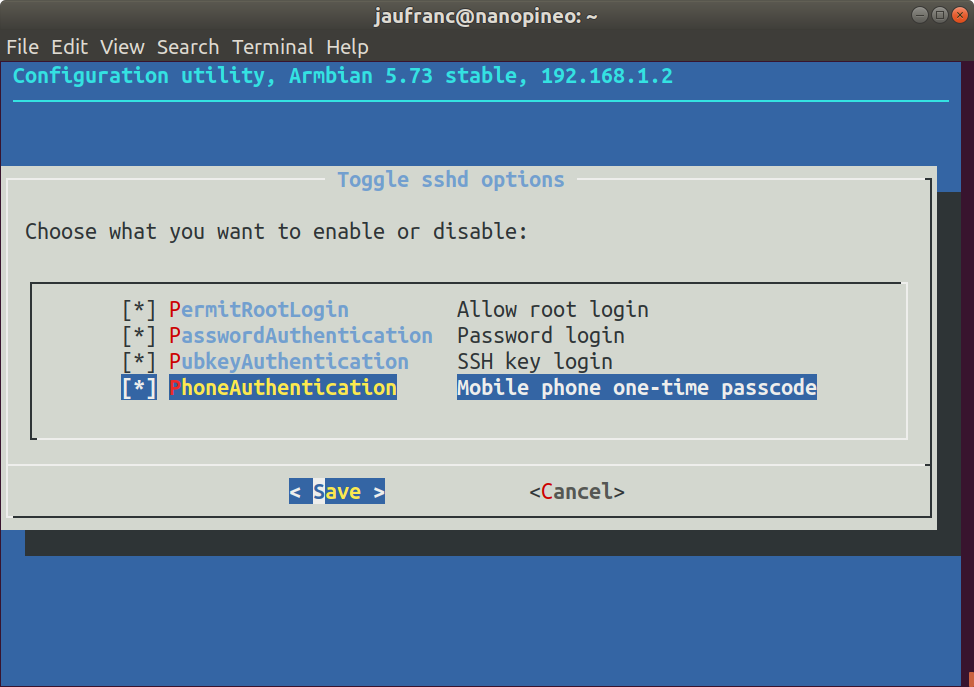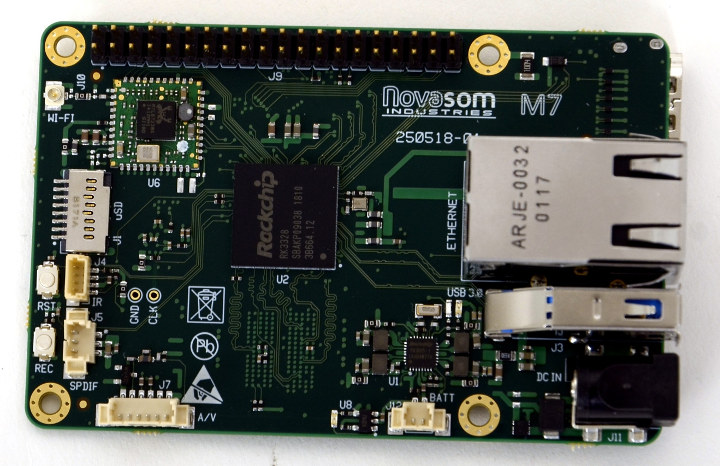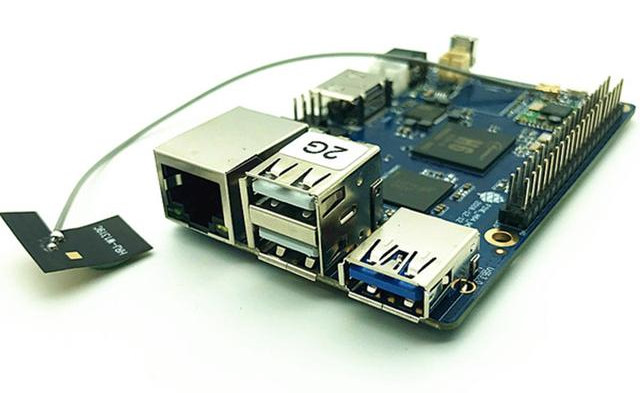If you’re a recent owner of a Raspberry Pi 4 SBC, you should have had an early taste of Debian 10 “Buster”, since the Raspberry Pi Foundation decided to release their Raspbian “Buster” image before the actual release in order to lower software development costs. Debian developers have only just announced the release of Debian 10 “Buster”. The new version of Debian supports various desktop environments including Cinnamon 3.8, GNOME 3.30, KDE Plasma 5.14, LXDE .99.2, LXQt 0.14, MATE 1.20, and Xfce 4.12. Besides the official announcement Debian also posted tidbits on their Twitter feed, where we learn for example that “Debian 10 buster has 28,939 source packages with 11,610,055 source files”. Officially supported architectures for Debian 10 include i386 and amd64 for x86 targets, arm64, armel and armhf Arm architectures, as well as various other architectures including MIPS (mips64el, mipsel…), PowerPC (ppc64el), and IBM System z (s390x). One notable […]
Khadas VIM3 SBC Launched with Amlogic A311D Processor, 5 TOPS NPU
We’ve previously written about Khadas VIM3 Amlogic S922X development board and revealed the price tag for VIM3 Basic ($69.99) and VIM3 Pro ($99.99) with a launch date announced for June 24. As time has passed, this has become “fake news” except for the launch date, as Khadas VIM3 SBC has indeed launched but for $99.99 (Basic) and $139.99 (Pro). What’s going on? Why the large price increase? That’s because Khadas team has decided to provide a more powerful platform to the community, and replace Amlogic S922X processor with Amlogic A311D processor boasting higher clock speeds and a 5.0 TOPS NPU. Another version may also become available later on with the soon-to-be-released Amlogic S922X-B processor whose Cortex-A73 cores are clocked at up to 2.2 GHz, instead of 1.7 GHz for the original Amlogic S922X processor that will be referred to Amlogic S922X-A in the future. New Khadas VIM3 SBC specifications: SoC […]
Create Minimal Debian Upstream Images with Debos and Armbian
[Update June 28: Post updated with correct procedure thanks to Collabora help] Armbian provides lightweight Debian or Ubuntu images for various Arm Linux SBC, and over the years has become the recommended source for stable firmware images for boards part of Orange Pi & Banana Pi families, and others. Uncompressed images are still over 1GB and come with Armbian-specific tools, kernel and bootloader. If you’d like to leverage Armbian images, but instead create a Debian upstream image with only the packages you intend to use, Collabora explains how to do just that with Orange Pi Zero +2 H5 and Libre Computer AML-S905X-CC (aka Le Potato) boards using Debos Debian OS builder. I’ve decided to give a try at the instructions for Orange Pi Zero Plus2 H5 in my laptop running Ubuntu 18.04 to better understand how this all works. I’ll assume you’ve already installed Docker, and made sure you’ve got […]
FriendlyELEC SOM-RK3399 Development Kit Targets AI & Machine Vision Applications
FriendlyELEC is better known for their low-cost tiny single board computers, but the company has also introduced systems-on-module in the past such as Smart6818 module powered by Samsung S5P6818 octa-core processor. The company has now launched another system-on-module with SOM-RK3399, which as its name implied features Rockchip RK3399 processor, as well as a corresponding carrier board mostly designed for artificial intelligence and computer vision applications. SOM-RK3399 System-on-Module Specifications: SoC – Rockchip RK3399 big.LITTLE hexa-core processor with 2x Cortex-A72 cores up to 2.0GHz, 4x Cortex-A53 cores up to 1.5GHz, Mali-T864 GPU with support for OpenGL ES1.1/2.0/3.0/3.1, OpenVG1.1, OpenCL, DX11, and AFBC, and VPU capable of handling 4K VP9 and 4K 10bits H265/H264 60fps decoding, Dual VOP, etc System Memory – Dual-Channel 2GB DDR3 Storage – 16GB eMMC 5.1 flash Networking 802.11a/b/g/n/ac, Bluetooth 4.1, Wi-Fi and Bluetooth combo module (AP6356S), dual antenna interface Realtek RTL8211E Gigabit Ethernet transceiver USB – 2x USB-C […]
How One Line of Code Tripled Allwinner A20 SATA Write Performance
If you’ve been following this blog long enough, you may remember that all linux-sunxi community work aiming at improving u-boot and Linux software support on Allwinner processors started with Allwinner A10 processor found in MeLE A1000 TV box back in 2012, which at the time provided an interesting alternative to Raspberry Pi board that was in short supply at launch time and several months after. One of the most interesting feature found in Allwinner A10 single core Arm Cortex-A8 processor was its SATA interface, and Allwinner A20 was announced a few months later with a dual core Cortex-A7 processor and virtually the same peripherals as Allwinner A10, including SATA. However when I tested CubieTruck board connected to a mechanical drive, I noticed sequential SATA performance was fine for reads (~180MB/s), but writes were fairly slow at around 36 MB/s. Other people complained about it, and some looked into it, and […]
Enabling Two-Factor Authentication for SSH Access in Armbian
Until today, I only knew of two authentication methods for SSH: the traditional username/password and key-based login with private/public keys with the latter being more secure and not requiring any password. But I’ve just found out it’s also possible to login to SSH using two-factor authentication relying on your smartphone to get an OTP code like you would to access some banking services as it can easily be enabled in Armbian. First you’ll want to enable key-based login with private/public keys, or you won’t be able to access your board anymore after enabling 2FA except via the serial console. Now simply start armbian-config, and go to System Settings->Reconfigure SSH daemon to enable PhoneAuthentication “mobile phone one-time passcode”. We’re not done yet, so don’t close Armbian-config You’d then need an Android or iOS phone running Google Authenticator app to receive the OTP (one-time password). After enabling PhoneAuthenticator in armbian-config, you’ll see […]
Novasom M7 SBC aims to be a Drop-In Replacement for Raspberry Pi 3 in Industrial Projects
Raspberry Pi boards are great for education and hobbyist projects, and while they are also found in industrial projects, they may not be the ideal solution for such commercial projects because of potential availability issues, stability issues in demanding environments, lack of certifications, and lack of commercial support. Novasom RASPMOOD family of SBCs aims to provide a drop-in replacement for Raspberry Pi based designs by providing mechanically and electrically compatible boards, as well as a software layer that allows the RASPMOOD boards to leverage the software you’ve already developed for your Raspberry Pi 3 design. Today we’ll specifically look at Novasom M7 “RASPMOOD” board – aka SBC-M7 – powered by a Rockchip RK3328 processor. Specifications: SoC – Rockchip RK3328 quad core Cortex-A53 processor with Mali-450MP4 GPU System Memory – Up to 4 GB DDR3 RAM Storage – Up to 256 GB eMMC Flash + uSD slot Video Output – HDMI […]
PINE H64 Model B SBC Launched with Raspberry Pi Form Factor
Pine H64 development board was introduced about a year ago with an Allwinner H6 processor, 1 to 3GB RAM, Gigabit Ethernet, a USB 3.0 port, a PCIe socket, and more with the legacy Pine A64 form factor and price starting at $25.99 for the 1GB RAM version. However, Pine64 made a few announcements at FOSDEM 2019, and beside the upcoming Pinebook Pro Linux/*BSD laptop, the company also mentioned a new PINE H64 Model B, still based on Allwinner H6 processor, but instead following Raspberry Pi form factor also used by the company’s Rock64 SBC. The new board is still not available on the official Pine64 store, but Ameridroid is already taking orders for Pine H64 Model B for $38.95 (2GB RAM) and $48.95 (3GB RAM). Pine H64 Model B specifications: SoC – Allwinner H6 quad-core Arm Cortex-A53 processor @ 1.8GHz with Arm Mali T-722MP2 dual-core GPU supporting OpenGL ES 3.1/3.0/2.0/1.1, […]



